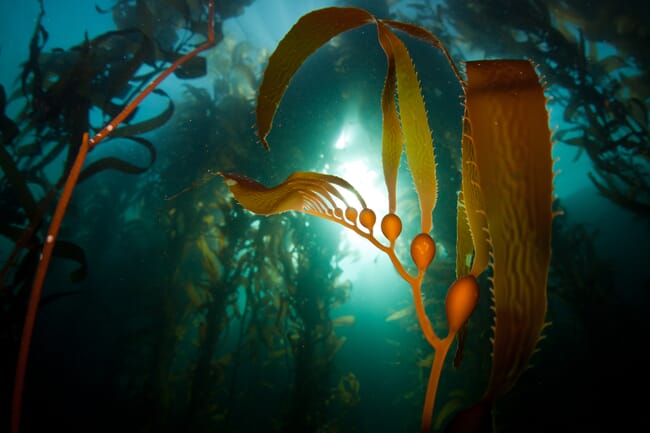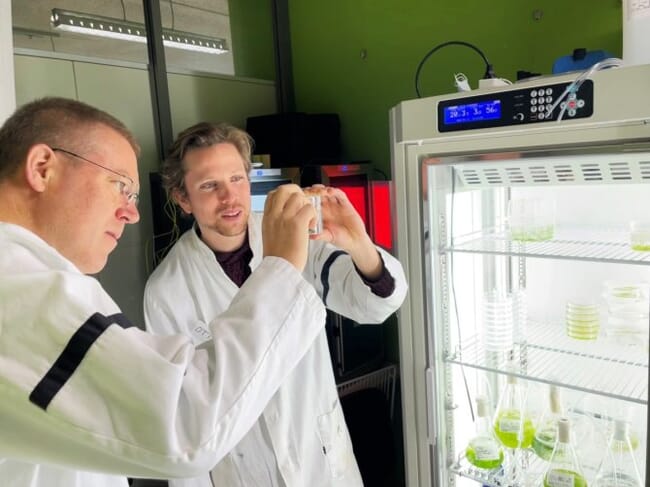
In the coming years, the use and layout of a large part of the Dutch North Sea will change dramatically. At the same time, the demand for sustainably produced food, especially protein and biogenic raw materials will increase.
Scientists from Wageningen University Research and other institutions, with financial support from the Dutch Research Council (NWO), will conduct research into an efficient and sustainable protein production chain in the sea, the effects of large-scale seaweed production on marine ecology and new business models for seaweed production.
Designing a better seaweed attachment method
Researchers from WUR are leading the SEASeeds consortium that will study the improvement of attachment of seaweed seedlings (sugar kelp) to cultivation lines, the effects of large-scale seaweed cultivation on the marine ecology and the development of promising business models for Dutch seaweed.
Small-scale cultivation trials show that large and variable detachment of seaweeds currently results in inefficient and unpredictable cultivation, with high economic risks and unknown impacts on marine ecology. In part because of this, the sector fails to attract investment, which complicates the upscaling required for profitability.
In the SEASeeds consortium, the Wageningen institutes for Plant Research, Marine Research and Economic Research work together with Deltares, Brandfriend, Friedrich Schiller University Jena, Hortimare, North Sea Farmers, ReShore, Langman Ropes and Ghent University. Tijs Ketelaar of the Laboratory of Cell Biology at WUR is project leader.

The other consortium (From Sea to Society) is led by professor Klaas Timmermans of NIOZ and focuses on a marine, efficient, sustainable, low trophic aquaculture chain (LTA), based on biomass from combined seaweed-mussel cultivation.
The parties will work together in two consortia, including public organisations and businesses from the seaweed and shellfish sector, the food industry and the province of Zeeland. The interdisciplinary research projects will start in mid-2022 and run for six years. Together, the projects have been awarded a total of more than €2.6 million. Public and private partners will contribute co-funding for an amount of a further €450,000.




